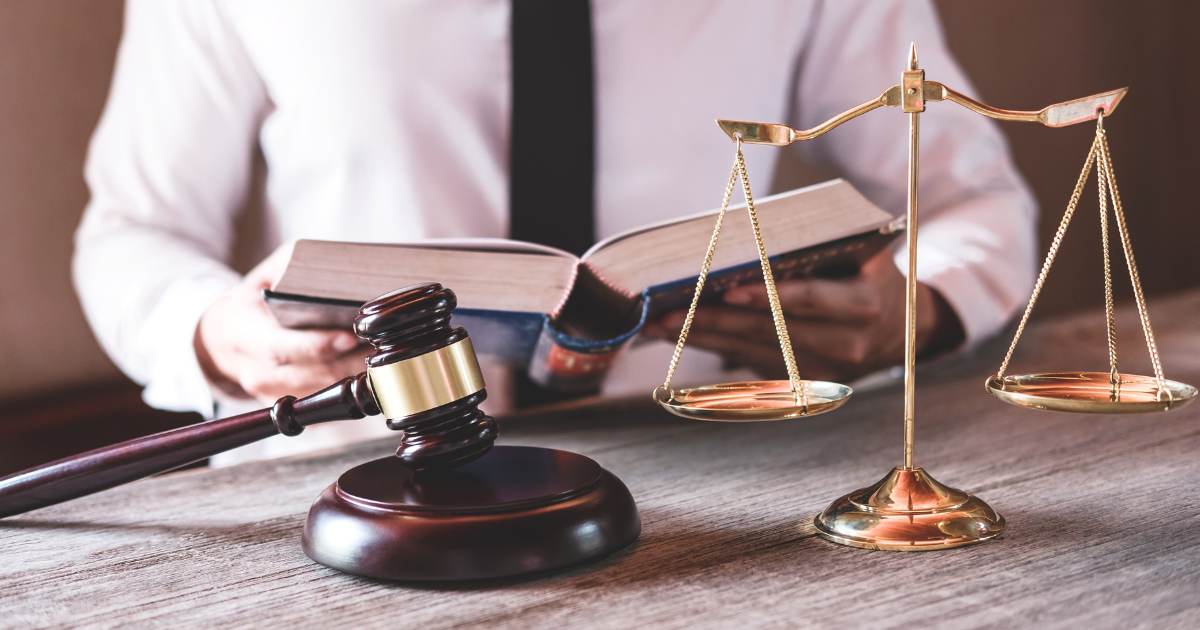Court: Landlord Only Entitled to Damages Up to the Date of Repossession
In a recent opinion, the Pennsylvania Superior Court in 1700 Market St. Associates v. Common Grounds 1700 Market St., 314 A.3d 855 (Pa. Super. Ct....
4 min read
Alan Nochumson and Alex Goldberg : Jul 8, 2022 9:00:00 AM

As Philadelphia City Council enjoys its summer recess, this is a good opportunity as any for us to review recently enacted or pending laws that will affect the personal and business lives of individuals and corporate entities situated within the city of Philadelphia.
The new law regarding Airbnbs and other short-term rental accommodations within city limits went into effect recently. The city government now only allows “limited lodging,” or short-term rental accommodations, of a unit that is the owner’s primary residence. Property owners considering limited lodging must first obtain a limited lodging operator license from the city government, then list the rental through a booking agent with a limited lodging and hotels booking agent license. For a property owner hoping to lease a property that is not their primary residence, the property owner will have to obtain a zoning permit either as of right under a zoning classification that allows for “visitor accommodation” or seek and obtain a variance under the Philadelphia Zoning Code to allow for such a use of the property. A number of other requirements were created under the new law, regulating tenant behavior, advertising and licensing.
This new law, which goes into effect on July 18, will require 20% of residential units in any new housing development with 10 or more residential units in select tracts of the 3rd and 7th Councilmanic Districts be made available at restricted pricing for a 50-year period. At least 15% of these affordable units must be on-site. The new law offers real estate developers and investors the chance to apply for a waiver from the City Planning Commission to fulfill up to 5% of the requirement via offsite units or a Housing Trust Fund contribution. These units must be affordable for rental households earning up to area median income (AMI) of 40%, and for owner-occupied households earning up to 60% of AMI.
As of March, commercial tenants must be afforded the opportunity to determine the zoning and approved uses for a commercial property before entering a lease arrangement. The landlord must give the tenant written notice on how to determine the zoning and approved uses of the leased premises and an acknowledgement form signed by both parties, indicating that the tenant received the requisite written notice. The new law provides tenant with a private right of action against any landlord which fails to comply with it.
Beginning in 2023, a commuter benefits program will empower thousands of Philadelphia workers to use pre-tax income to cover commuting costs. The law, introduced by Councilmember Helen Gym, and enacted in early June, will require employers with more than 50 full-time employees in Philadelphia to offer a commuter benefits program, which can be used for public transit passes and fares, van-pooling and potentially bicycle expenses. Cities such as New York City, Seattle and Washington, D.C. have already implemented similar governmental programs.
A new governmental program providing a homebuying preference for qualified employees working for the city government will commence in late July. The new law directs the city’s Office of Housing and Community Development to draft and set regulations governing the manner in which governmental employees and other preferences will be applied within its workforce housing programs.
This bill was introduced by Councilmember Mark Squilla on May 12. The bill proposes that, for real estate taxes due for the 2023 tax year, no interest, penalties, or additional charges will accrue while an appeal of a property’s assessed value is pending before the city’s Board of Revision of Taxes (BRT), provided that the tax assessment appeal was timely filed and the taxpayer has paid by March 31, 2023, an amount equal to the real estate taxes due on the property for the 2022 tax year.
This bill, introduced by Councilmember Katherine Gilmore Richardson, seeks to increase the tree canopy across the city of Philadelphia, preserve existing trees, and impose fees for real estate developers and investors who cut down trees with no plan to replace them.
The bill provides for a payment to the Philly Tree Fund in lieu of planting trees, which Gilmore Richardson hopes will allow the city to reach its goal of tree canopy of 30% across all of its neighborhoods by 2030.
According to the Philadelphia City Council’s website, the bill comes after the city’s tree cover has declined by 6% since 2008 due to rapid development in residential areas. Improving the city’s tree canopy will enhance property values, reduce summer peak temperatures and air pollution, improve social ties among community members and provide obvious aesthetic benefits.
On Feb. 10, Councilmembers Curtis Jones, Jamie Gauthier and Allan Domb introduced this bill that amends the Philadelphia Code to include additional requirements for demolitions permits for building structures currently or previously used as religious facilities.
The bill would require the city’s Department of Licenses and Inspections (L&I) to verify if a building structure is or was used as a religious facility. If the building structure is a religious facility and is at least 50 years in age, L&I must notify the applicable district councilmember and the applicable registered community organizations (RCOs) of the demolition permit application, and, after that occurs, the applicable RCOs must hold a meeting with the community and confirm with L&I that they discussed demolition within 30 days of receiving notice of the demolition permit application, with L&I then considering the position of the RCOs in making the decision whether to issue the demolition permit. If passed, the bill will take effect immediately.
This bill, introduced on Jan. 20 and effective on Jan. 1, 2023, would increase the protections afforded to adjacent property owners during construction. Specifically, under the bill, property owners would be responsible for preparing and submitting plans to protect those adjacent properties including details on adjoining or adjacent buildings structures and any element that may be impacted by the construction; documentation of the existing conditions of adjoining or adjacent building structures; photographs of the existing conditions of adjoining or adjacent building structures; and a signed statement by the representative of the entity performing structural observations confirming the conditions in preconstruction surveys.
According to the bill, the initial notice of construction given to adjacent or adjoining property owners must include the pre-construction survey and details describing work that may affect the adjoining or adjacent property and a copy of an insurance certificate. If the property owner cannot obtain a signature from the adjacent or adjoining property owner for the building permit, evidence of delivery is sufficient to receive the building permit, but that property owner must wait 60 days prior to commencing construction activities.
Reprinted with permission from The Legal Intelligencer © 2022 ALM Media Properties, LLC. All rights reserved. Further duplication without permission is prohibited. For information, contact 877-257-3382, reprints@alm.com or visit www.almreprints.com.

In a recent opinion, the Pennsylvania Superior Court in 1700 Market St. Associates v. Common Grounds 1700 Market St., 314 A.3d 855 (Pa. Super. Ct....

Can a long-term tenant sue for rent abatement and reimbursement of legal fees and costs for their landlord’s failure to comply with the city of...

The Pennsylvania Commonwealth Court recently issued a ruling in Landlord Service Bureau v. City of Pittsburgh, 2023 Pa. Commw. LEXIS 24 (March 17,...